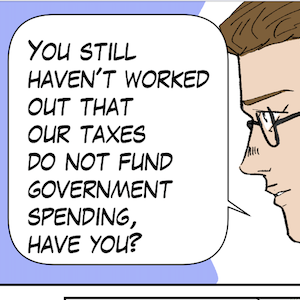US inflation rate is declining – no case for further rate rises
It’s Wednesday and I have comments on a few items today. I haven’t been able to write much today because the power has been down after the dramatic storms yesterday in Victoria damaged the network and caused absolute chaos (see below). Power is mostly back on now (which is why this post is later than usual). The US CPI data released yesterday showed that inflation continues to decline and the so-called ‘surprise’ that seems to have shocked the ‘markets’ are mostly down to the eccentric way the US Bureau of Labor Statistics calculates housing costs. The data provides no justification for further rate hikes in the US or anywhere else for that matter. I also report on an interesting survey from Japan regarding local attitudes to foreigners. I don’t think it reflects Japanese insularity although many will conclude otherwise. Then some Wayne Shorter.

